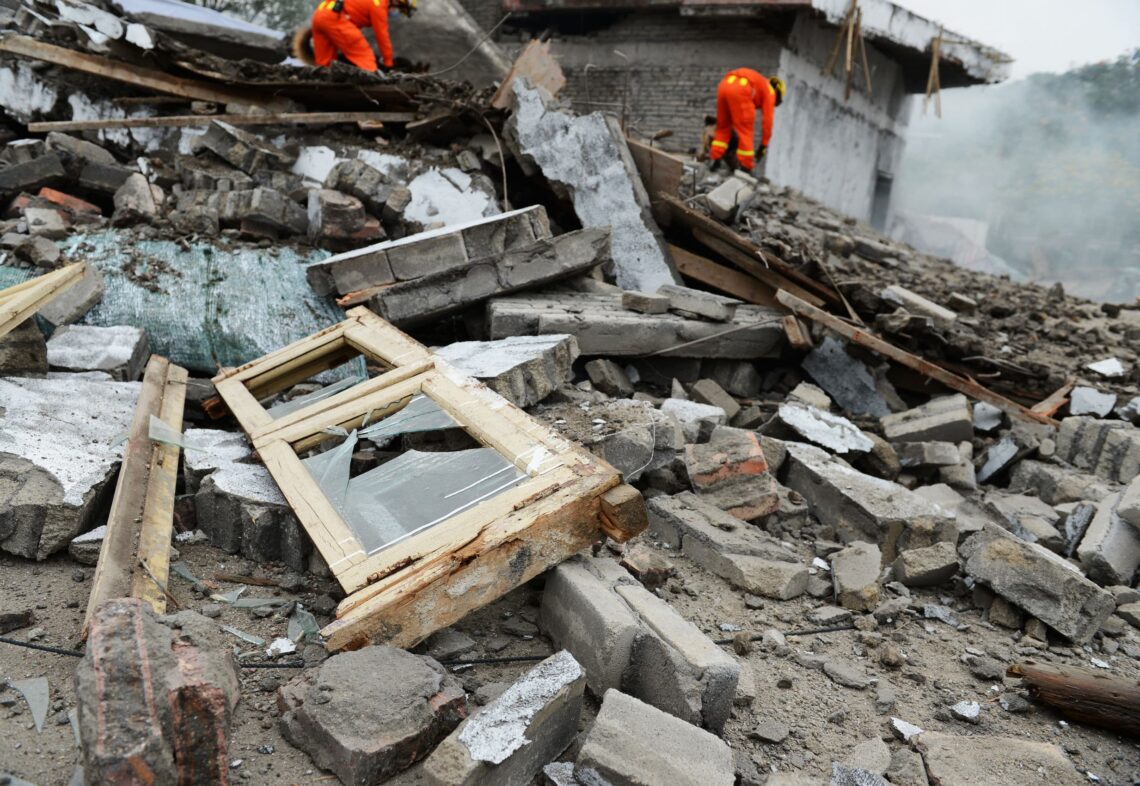Effective disaster management requires a collaborative effort between government agencies, emergency management organisations, and the public. To ensure a proactive approach to disaster risk reduction, governments must prioritise budget allocation and clear deliverables for agencies responsible for disaster and emergency management.
Disaster management refers to the planning, coordination, and implementation of strategies to mitigate, prepare for, respond to, and recover from natural or human-induced disasters. Effective disaster management involves:
There is no disaster Management without these parameters of prevention to identifying risks and taking measures to prevent or reduce the likelihood of a disaster, preparedness to developing emergency plans, conducting drills and stockpiling resources, real time response in providing immediate assistance during or after a disaster, recovery to restoring affected communities and rebuilding infrastructure and mitigation for implementing measures to reduce the impact of future disasters.
The key components herein are risk assessment to identifying potential hazards and vulnerabilities, emergency planning to developing response and recovery plans, communication for coordinating with stakeholders and disseminating critical information, resource management for allocating personnel, equipment, and supplies and community engagement for educating the public and promoting resilience.
There is a budgeting for resilience tagged Disaster Risk-Based Budgeting (DRBB) which is a crucial step in integrating disaster risk considerations into the government budget cycle. This approach helps identify potential entry points for disaster risk reduction, such as long-term fiscal forecasting for incorporating disaster stress tests into budget planning, as seen in New Zealand’s National Treasury operations. There is public investment planning in considering disaster risk when planning public investments, as implemented by the Philippines and emergency procurement for establishing clear protocols for post-disaster procurement to ensure transparency and efficiency.
Government participation and coordination for effective disaster management involves Interagency collaboration for coordination between government agencies, emergency management organisations, and the public to ensure a unified response policy development in establishing national disaster management frameworks and policies to guide disaster risk reduction efforts and resource allocation to enable sufficient resources to support disaster management agencies and initiatives.
Government agencies responsible for disaster and emergency management should focus on disaster risk reduction by implementing measures to mitigate disaster risks and impacts, ensure emergency preparedness by developing contingency plans and conducting regular training exercises, response and recovery capabilities by providing effective response and recovery efforts during and after disasters
Typical disaster types that we experience are natural Disasters (e.g., earthquakes, hurricanes, floods), human-induced disasters (e.g., industrial accidents, terrorism), pandemics and epidemics, climate-related disasters due to our nonchalant attitude to global existence.
There are international organisations with ready to roll assistance like the United Nations Office for Disaster Risk Reduction (UNDRR), International Federation of Red Cross and Red Crescent Societies (IFRC), World Health Organization (WHO) and others but the onus is on us to be our own first responders with the right disposition.
Modern technologies play a key role in operations. Geographic Information Systems (GIS), Remote Sensing, Social Media space and Emergency Management Software enable robust communication outlay for sensitisation and education as applicable.
Inherent challenges cannot be ruled out. Funding constraints, coordination and communication breakdowns, climate change and increasing disaster frequency/intensity, vulnerable populations (e.g., low-income communities, elderly).
Without much ado, there’s pertinent need for collaborative planning and coordination, community-based initiatives, Investment in disaster risk reduction, continuous training and exercises, incorporating technology and innovation in all ramifications of operations.
Government approach to disasters involve a range of strategies, policies, actions to mitigate, preparedness which culminates into a disaster management framework of:
Prevention: Identifying risks, enforcing building codes, conducting regular inspections.
Preparedness: Developing emergency plans, conducting drills, stockpiling resources.
Response: Providing immediate assistance, search and rescue, relief distribution.
Recovery: Restoring infrastructure, providing aid, promoting economic revival.
Mitigation: Implementing measures to reduce future disaster impact.
Government role herein should project a three tier operations from the federal government policy making, resource allocation, coordination and funding to state governments implementation, emergency management, relief distribution and finally the Local Government community preparedness, response coordination and recovery efforts.
A synergy of government agencies is quite apt in this regard. Ministry of Humanitarian Affairs, NEMA, SEMA, security agencies, Meteorological Agency, NIHSA, Health ministry and its agencies are all called to arms.
Government participation, budget allocation, and clear deliverables are essential for effective disaster and emergency management. By prioritizing disaster risk reduction and incorporating DRBB into budget cycles, governments can build resilience and reduce the impacts of disasters on communities.
NEMA Nigeria has all its policies and mandates as in the Budgeting for Resilience: A Blueprint for Incorporating Disaster Risk into Governments’ Budgets, National Disaster Risk Management Policy, Approaches to Budgeting for Disasters in States, National Disaster Management Framework (NDMF) and the NEMA National Disaster Response Plan. We pray for a concise synergy between the federal government and its agencies for the paramount interest of safety to live and property of the people.





